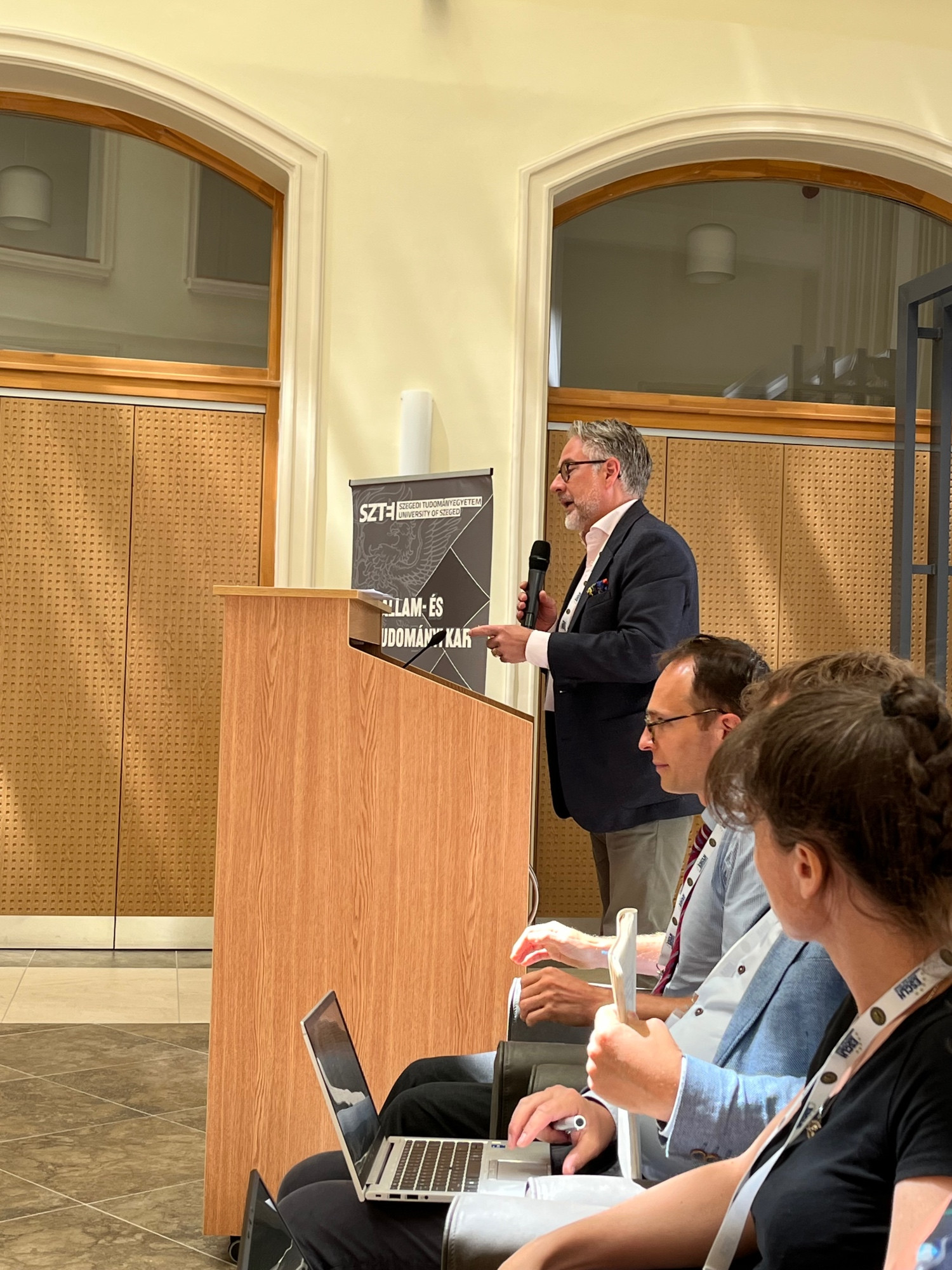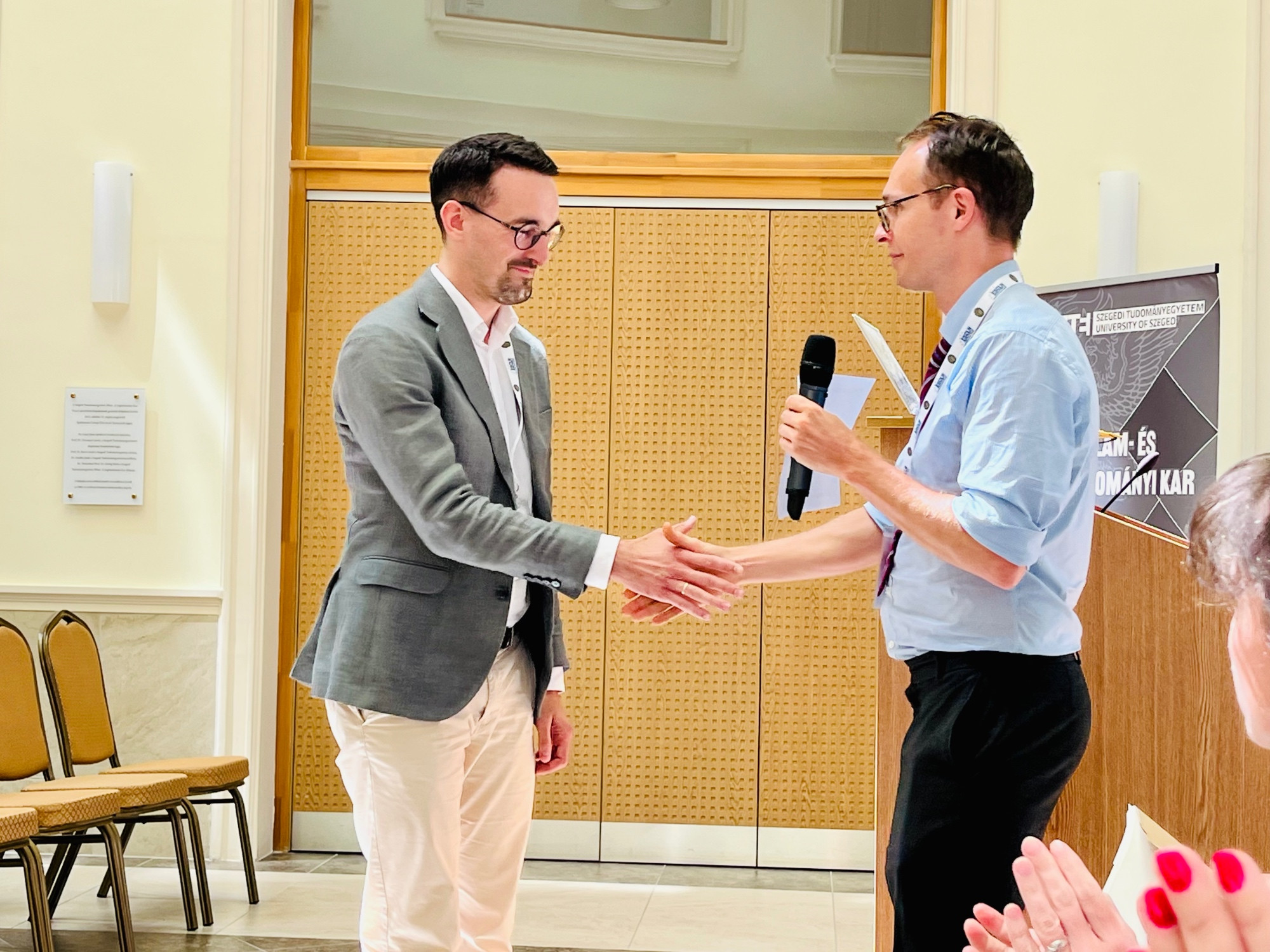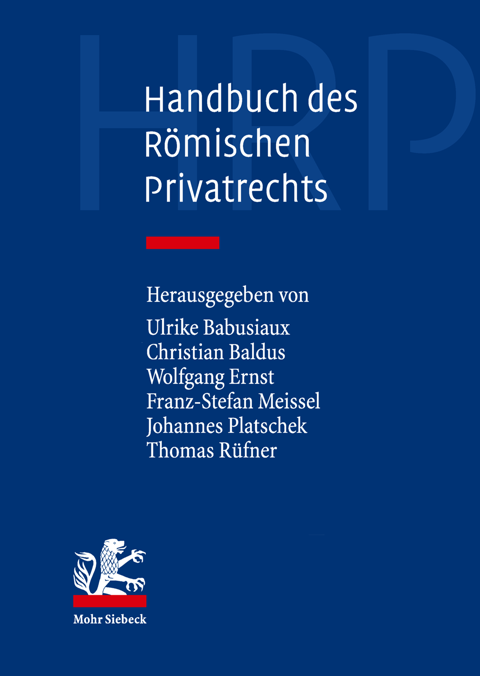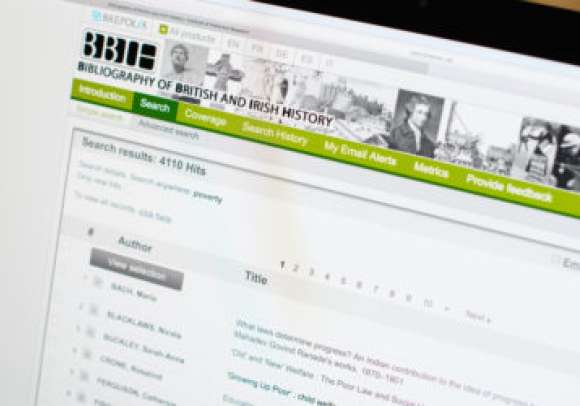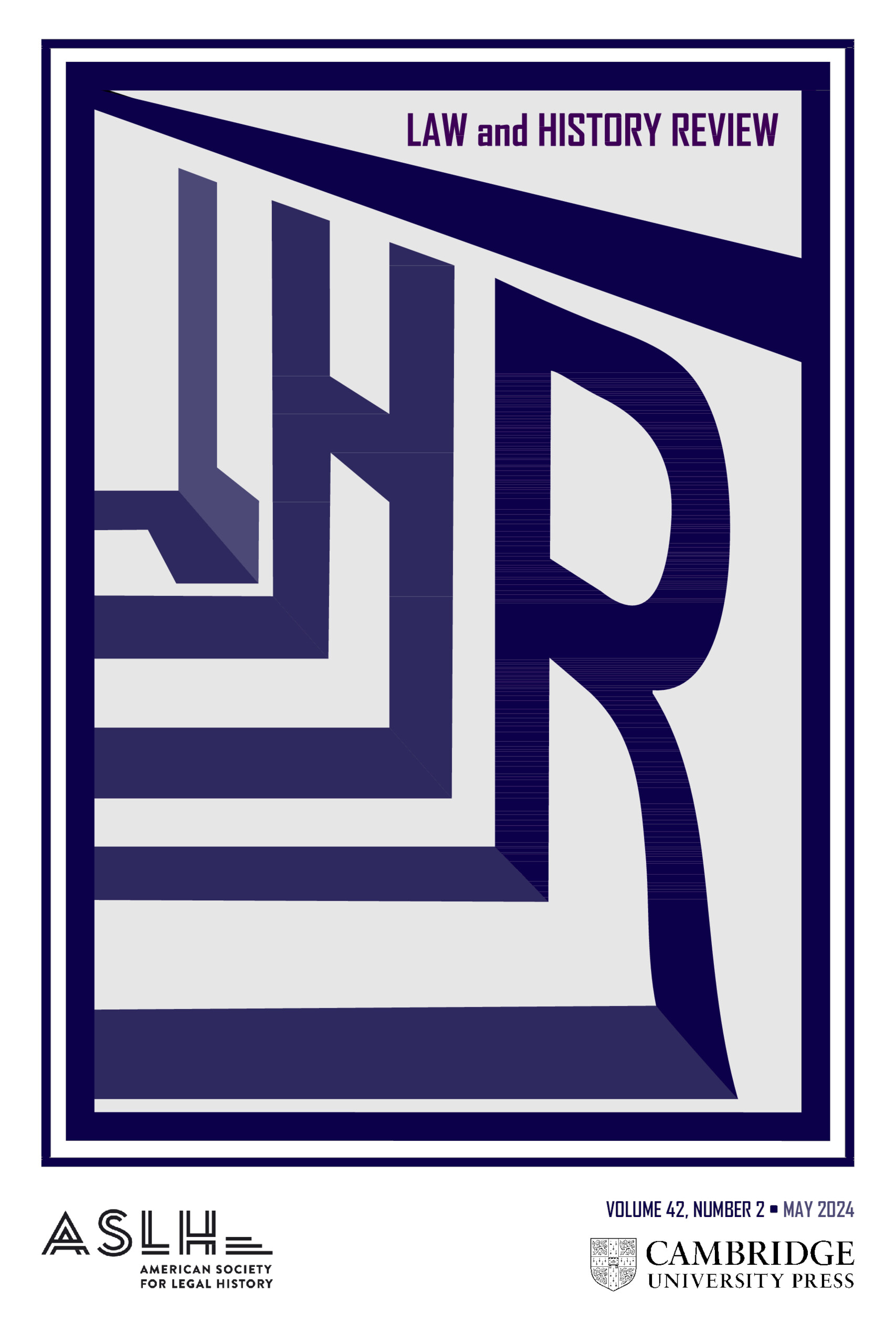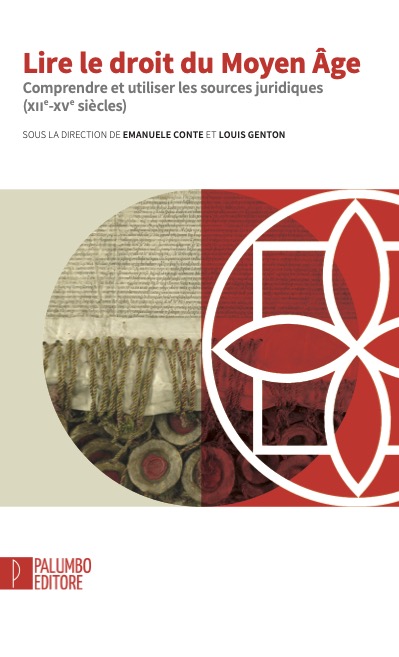Avant-propos (Olivier Bosc)
DOI 10.3917/rhj.035.0007
Introduction
L'infamie au Moyen Âge (Claude Gauvard)
DOI 10.3917/rhj.035.0007
First paragraph:
En bonne méthode, commençons par l’étude des mots. Celui d’infamie n’est pas très fréquent au Moyen Âge. C’est ce qu’enseigne le recensement que j’ai pu faire dans les différents dictionnaires, qu’il s’agisse du terme latin infamia ou du moyen français « infamie » ou « enfamie »
L'infamie et l'office du juge (Basile Ader)
DOI 10.3917/rhj.035.0019
First paragraph:
Depuis l’ostracisme athénien jusqu’à l’indignité nationale de la Libération, l’infamie est une marque que l’État inflige à ceux qui méritent l’exclusion de la cité. L’État ne se contente pas d’exclure, il entend que « les infâmes » soient marqués du sceau de l’infamie, pour que cela se sache et ne s’oublie pas. L’opprobre doit être publique et éternelle. C’est le marquage « au fer rouge », celui qui est indélébile.
Partie 1. La construction de l'infamie
La construction de l’infamie dans le droit romano-canonique médiéval (xiie - xiiie siècles) (Corinne Leveleux-Teixeira)
DOI 10.3917/rhj.035.0029
Abstract:
Issue du droit romain, la catégorie d’infamie a été reçue et interprétée par les juristes médiévaux dans une double perspective, substantielle et procédurale. Sur le fond, ils s’efforcèrent de définir les infâmes et de préciser les effets juridiques attachés à ce statut, très pénalisant dans une société à honneur. Sur le plan procédural, leur apport réflexif fut plus décisif encore. La création de la notion d’infamia facti au cours du xiie siècle rendit en effet possible deux évolutions concomitantes : d’une part, l’émergence de la procédure inquisitoire, conçue au départ comme une réponse aux mises en cause des clercs ; d’autre part, l’élaboration d’un dispositif cognitif d’enquête permettant de trancher les cas d’incertitude et de substituer l’ordre public au scandale et la vérité à la rumeur.
De la trace judiciaire à l’enquête policière : infâmes et policiers dans les archives de la Bastille (Marie-Elisabeth Jacquet)
DOI 10.3917/rhj.035.0041
Abstract:
Le présent article propose un regard sur l’infamie extérieur aux institutions judiciaires, en s’appuyant sur les archives policières constituées au début du xviiie siècle par la lieutenance générale de police de Paris. Si la peine de la marque signale en théorie la récidive, constitue-t-elle une catégorie d’appréhension des marginaux pour la police d’Ancien Régime ? La surveillance policière se surimpose-t-elle systématiquement à la peine judiciaire ? Il semble qu’en pratique se manifeste dans l’appréhension policière de l’infâme une forme de souplesse des pratiques, suggérant une forme d’autonomie des catégories policières vis-à-vis des catégories judiciaires.
S’approcher de l’ignominie. Les hommes infâmes sous l’œil des savants et des tribunaliers (1880-1930) (Frédéric Chauvaud)
DOI 10.3917/rhj.035.0053
Abstract:
De 1880 à 1930, les êtres infâmes et l’infamie s’invitent dans les cours d’assises et les tribunaux correctionnels. Pour les contemporains, le premier contact vient du banc d’infamie, nom donné au box des accusés ou des prévenus. Les chroniqueurs judiciaires en donnent de longues descriptions. Ils s’attardent sur le physique des hommes et des femmes qui doivent correspondre aux individus ignobles. Mais l’infamie déborde les définitions juridiques. Elle désigne aussi les fausses nouvelles et les dénonciations avilissantes. L’infamie correspond aussi à une époque particulière. Pour de nombreux observateurs, les conduites infâmes sont celles d’une époque qui voit l’essor des corrupteurs et des corrompus, que les scandales mettent en pleine lumière.
Peintures infamantes et mort programmée : Érasme pendu en effigie (1506-1524) (Valérie Haeyaert)
DOI 10.3917/rhj.035.0063
Abstract:
La révolution numérique a profondément ancré le partage des images dans un nouvel espace distributif, qui a parfois conduit à l’inverse de l’idéal auquel on s’était attendu. La calomnie devenue virale, les pratiques du « shame and blame » sur les réseaux sociaux, et les modalités de ces flétrissures numériques invitent à s’interroger sur le destin de l’image dans son articulation à l’infamie, à partir d’une généalogie visuelle et non pas à partir des textes et des gloses. Alors même que notre société contemporaine considère l’image comme un virus et que la tyrannie de sa visibilité se jauge souvent en fonction de la viralité, il est opportun de revenir aux antécédents anciens de l’image infamante, pour en élucider les mécanismes et la grammaire spécifique.
Partie 2. Les catégories d'infâmes
Une infamie ignoble et pourtant indispensable : chiffonniers, brocanteurs et détaillants au début de l’économie de marché (XIIIe-XVe siècle) (Giacomo Todeschini)
DOI 10.3917/rhj.035.0087
Abstract:
On peut mieux comprendre la construction historique et juridique de la notion d’infamie si on étudie l’attitude des élites marchandes et des législateurs face à l’essor du commerce de seconde main et en général du commerce de détail entre les xiiie et xve siècles. Ce type de petit commerce prend une importance accrue en produisant une offre de marchandises de plus en plus développée, en relation avec l’augmentation de la demande de biens à petit prix. Or, ceux qui en étaient les protagonistes, à savoir les regratiers, c’est-à-dire les brocanteurs, les fripiers et les petits détaillants, étaient traditionnellement considérés comme des marginaux. Ainsi se produisit, au début de l’âge moderne, une contradiction entre cette nouvelle forme de marché et la tradition économique romano-chrétienne qui concevait les relations économiques comme des liturgies civiques définies et contrôlées par des groupes restreints et politiquement dominants, et non par des gens obscurs, considérés comme « infâmes ».
« Terrible il apparaît sur la colline infâme. » Le gibet, un lieu d’infamie ou un lieu infâme ? (Moyen Âge - époque contemporaine) (Mathieu Vivas)
DOI 10.3917/rhj.035.0097
Abstract:
Les gibets, les potences et les fourches patibulaires, autrement dit les lieux architecturés de la pendaison, s’ils sont des lieux de l’infamie judiciaire, sont-ils pour autant des lieux infâmes ? Mentionnés dans les sources écrites, représentés dans les documents icono-cartographiques, ils sont également des vestiges en élévation et des preuves archéologiques des peines létales, infamantes et exemplaires qui pouvaient frapper les justiciables durant le Moyen Âge et l’époque moderne. Cet article analyse ces édifices à l’aune des rapports que les hommes du passé et du présent ont entretenus et entretiennent avec eux et, plus loin encore, s’interroge sur la façon dont ces hommes ont pu percevoir et perçoivent encore l’infamie à travers eux.
Sade, ou la liberté d’expression portée jusqu’à l’infamie (Basile Ader)
DOI 10.3917/rhj.035.0115
Abstract:
Les écrits de Sade ont pendant deux siècles été frappés d’infamie. Sade aurait pu avoir un sort différent. Il est, en effet, avec Voltaire, dont il est le contemporain, celui qui a le plus fait avancer la liberté d’expression. Ils figurent, l’un et l’autre, comme les deux faces du même combat. Là où Voltaire a théorisé le principe dégagé par les Lumières, Sade les a mis en œuvre pour son propre compte. Il est l’archétype de la face noire de la liberté d’expression, celle qui accède à l’intolérable. Cela lui a valu de passer plus du tiers de sa vie en prison, et à son œuvre d’être interdite jusqu’à un temps très récent. L’éditeur Pauvert avait publié ses œuvres complètes en 1955. Il fut condamné pour atteinte aux bonnes mœurs. Les attendus du jugement rendu par le tribunal de Paris se sont attachés à démontrer en quoi, au-delà de la philosophie de ses écrits, Sade heurtait la morale jusqu’à l’infamie.
Frapper d’infamie au XIXe siècle par les peines du carcan et de l’exposition publique (Laurence Soula)
DOI 10.3917/rhj.035.0121
Abstract:
Les constituants ont conservé les peines infamantes en 1791 et l’objet de cette recherche s’attache à retracer le parcours de deux de ces peines, celles du carcan et de l’exposition publique, au xixe siècle. Leur particularité est d’exposer le condamné sur la place publique pendant une durée plus ou moins longue, le corps lié à un poteau. Quelle fonction ont-elles occupé dans le droit pénal post-révolutionnaire ? Quels débats ces peines ont-elles suscités ? De quelles réformes ont-elles été l’objet ? Quel a été leur devenir ? Comment le principe même de l’infamie et des peines infamantes a-t-il évolué au niveau des mœurs et des pratiques punitives admises par l’opinion ? Pour y répondre, cette étude s’appuie notamment sur l’analyse de la législation, de la doctrine, de la presse, ainsi que sur les réformes successives du droit pénal projetées ou opérées au xixe siècle.
L’infâme prostitution : ordre des discours depuis le xviie siècle (Samantha Pratali)
DOI 10.3917/rhj.035.0141
Abstract:
Depuis au moins le xviie siècle, une tradition discursive de qualification de la prostitution comme une infamie persiste. Par la méthode du recensement des espaces où les mots prostitution et infamie ou infâme sont associés, il a été possible, sans pour autant être exhaustif, d’établir les filiations entre ces tournures de phrases. La langue du droit n’est pas extérieure à cet habitus, car durant l’Ancien Régime les sanctions au maquerellage sont des peines infamantes. Seulement l’infamie de la prostitution émerge dans l’entourage de la prostitution, entourage familial mais aussi social. Dès lors, cette contribution tente de dessiner les contours d’une opinion de la prostitution.
L’infamie au XXe siècle : le cas de l’indignité nationale (Anne Simonin)
DOI 10.3917/rhj.035.0149
Abstract:
Le nouveau crime d’indignité nationale, inventé par les juristes de la Résistance pour permettre le jugement des Vichystes lors de la Libération de la France, est sanctionné par une peine infamante, exclusivement privative de droits (ni de la vie, ni de la liberté du coupable) : la dégradation nationale. Si la rétroactivité de l’infraction a été abondamment commentée, en revanche la qualification infamante de la peine a été largement ignorée. Or, si la résurgence de l’infamie de droit en 1944 ne va pas de soi et se révélera à la fois lourde de conséquences et d’inconséquences, frapper d’infamie le mauvais citoyen n’en a pas moins été une étape essentielle dans le rétablissement de la légitimité de la République comme seul régime de droit de la France.
L'infamie qui frappe les personnes soupçonnées ou condamnées pour terrorisme (Adrien Sorrentino)
DOI 10.3917/rhj.035.0161
Abstract:
L’infamie, note Beccaria, en 1764, au chapitre XXIII des Délits et des peines, est « un signe de réprobation publique, qui prive le coupable de la considération générale, de la confiance de la patrie et de cette sorte de fraternité qui lie les membres de la société ». Depuis 2012, dans un mouvement de mutation de l’appareil répressif national, la France a fait de la lutte antiterroriste une priorité absolue, instaurant un dispositif dérogatoire du droit pénal commun. Renforcé par les attentats de 2015, ce droit sui generis de l’ennemi a laissé place à une logique préventive frappant d’infamie les personnes soupçonnées ou condamnées pour terrorisme, de l’étiquette qui s’appose sur eux dès le moindre soupçon jusqu’à la phase du jugement. S’interroger sur l’infamie revient ainsi à se questionner sur les différentes façons dont le pouvoir met à l’écart et désocialise ces individus, les privant ainsi de toute réhabilitation.
Partie 3. Peut-on sortir de l'infamie ?
Infamie et présomption d'innocence (Élisabeth Guigou)
DOI 10.3917/rhj.035.0169
First paragraph:
Les meilleurs dictionnaires définissent l’infamie comme une flétrissure sociale ou légale faite à la réputation de quelqu’un, induisant déshonneur, opprobre et honte pour la personne visée, et, du côté de l’opinion publique, indignation, appel à sanction, mais aussi bassesse et comportements abjects
Le procès Zola, le procès de l'infamie (Basile Ader)
DOI 10.3917/rhj.035.0169
Abstract:
Le procès Zola est le procès de l’infamie à tous égards. Zola va devenir l’Infame en s’offrant en rempart de l’innocence de Dreyfus. Il provoque l’armée qui vient d’absoudre Esterhazy, le véritable traître, auteur du bordereau transmettant des informations militaires confidentielles à l’Allemagne, en publiant le « J’accuse » dans L’Aurore. Le ministère ne peut pas ne pas engager de procès en diffamation contre lui, tellement la charge est violente et accusatrice. Mais il va restreindre la poursuite pour ne pas s’exposer à la vérité des accusations touchant à l’innocence de Dreyfus. Et ensuite, le président de la cour va tout faire pour empêcher Zola et ses défenseurs, ainsi que les témoins, de parler de l’affaire Dreyfus. Zola fut finalement condamné. Mais les débats, malgré toutes les obstructions, ont montré enfin publiquement que Dreyfus était la victime d’une erreur judiciaire. C’est le point de bascule de l’Affaire à partir duquel l’infamie va se déplacer vers les vrais responsables de l’erreur judiciaire.
Les formes contemporaines de l'infamie
Contributions by Basile Ader, Anne-Marie Sauteraud, Frédéric Gras, Juliette Jombart & Pierre Baudis
Conclusion
Sous l'encre du droit, un rituel de dégradation persistant (Denis Salas)
DOI 10.3917/rhj.035.0213
Abstract:
Toutes les sociétés veulent marquer tous ceux qu’elles rejettent d’un signe irrécusable. Ce rejet puissant affecte ceux qui portent atteinte à leurs liens vitaux. Ceux qui, dans l’imaginaire collectif, sont nuisibles et, pour cela même, marqués au sceau de la marginalité et de la dangerosité. Contre eux, l’infamie est une colère qui gronde. D’hier à aujourd’hui, elle enveloppe d’opprobre nos ennemis moraux pour les écarter de toute vie sociale. Les rituels de dégradation de l’infâme se perpétuent, car ils s’enracinent dans la structure violente des sociétés humaines. Leur domestication est un défi permanent pour nos démocraties.
Figures de justice
L’affaire Maurice Audin, au cœur de la guerre d’indépendance algérienne. L’irréparable injustice ? (Sylvie Thénault)
DOI 10.3917/rhj.035.0221
Abstract:
Maurice Audin, partisan de l’indépendance de l’Algérie, arrêté, a disparu en 1957. En France, c’est l’une des plus célèbres affaires de la guerre d’indépendance algérienne (1954-1962). Le combat persévérant mené par Josette Audin a abouti à une reconnaissance de la responsabilité de l’État, le 13 septembre 2018. Cette portée, inégale au regard de l’ensemble des disparus de cette guerre, présente une triple opportunité historique : comprendre le système répressif à l’œuvre en Algérie, source des disparitions massives ; démontrer les formes de réparations possibles, face à l’amnistie ; documenter l’impossibilité de connaître la vérité sur les disparitions, que ce soit dans les archives ou par les témoignes. En l’absence de vérité, l’injustice demeure-t-elle irréparable ?
Je suis le juge qui siège sous la porte, comme en Orient… » Wladimir Rabinovitch, dit « Rabi » (1906-1981), avocat, magistrat, écrivain (Denis Salas)
DOI 10.3917/rhj.035.0231
Abstract:
Wladimir Rabinovitch, dit « Rabi » (1906-1981), est une figure méconnue de l’intelligentsia juive française de l’après-guerre. Nombre de ses engagements et réflexions dont il est question dans cet article – en particulier dans l’affaire Pierre Goldman – sont tirés du fonds d’archives de la revue Esprit. Parallèlement, après avoir été avocat, il exerce, à partir de 1940, les fonctions de juge dans une région montagnarde, tout en tenant un Journal. Il est rare de lire un texte qui porte un regard aussi aigu sur la place du juge dans la cité. Nombre de valeurs comme l’impartialité, l’attention à autrui ou l’indépendance sont abordées à l’occasion d’épisodes de la vie quotidienne. « Toute décision, écrit-il dans le Journal d’un juge, est un acte partisan. Je dois réaliser la justice ici et maintenant dans mon modeste arrondissement d’abord, au cœur de la cité, au milieu de mon troupeau ».
Varia La réforme du Code pénal maritime durant la Restauration, du constat d’un besoin au projet de loi (Gaëtan Obéissart)
DOI 10.3917/rhj.035.0251
Abstract
Les hommes de la Restauration ont la volonté de refaire une marine de guerre. Pour lui donner une ossature solide, on reconnaît la nécessité d’une refonte des lois pénales maritimes. Pourquoi une telle réforme ? Comment s’est élaboré le projet ? Quelles bases judiciaires donner à la marine militaire ? Une législation claire, lavée de tout soupçon d’illégalité, compatible avec les autres justices pratiquées ; une révision des peines prenant en compte l’ouverture du recrutement des marins et les idées du temps, voilà les bases judiciaires que l’on veut donner à la force navale française après 1815. Analyser la construction de cette proposition de réforme est l’occasion d’observer la structuration d’un débat en vue de l’élaboration d’une politique publique durant la Restauration.
La responsabilité des magistrats, de l’Ancien Régime à nos jours (Benoît Garnot)
DOI 10.3917/rhj.035.0261
Abstract:
De l’Ancien Régime (xvie-xviiie siècle) à nos jours, la responsabilité des magistrats, telle qu’elle s’exprime notamment dans le serment prêté lors de leur entrée en fonction, concernait tout autant leur vie privée que leur vie professionnelle, tant il est vrai qu’ils étaient censés montrer l’exemple en toutes circonstances. Mais, dans la pratique, le contrôle de cette responsabilité s’est exercé de manière contrastée : susceptibles d’être punis pour les écarts commis vis-à-vis de la discipline ou des « bonnes mœurs », ils l’étaient beaucoup moins, voire pas du tout, pour leurs fautes professionnelles.
Un épisode de la guerre d’Algérie dans les prisons : l’évasion dramatique de détenus du FLN de la maison d’arrêt de Chambéry le 5 novembre 1961 (Jean-Amédée Lathoud)
DOI 10.3917/rhj.035.0267
Abstract:
Pendant la guerre d’Algérie, le FLN a mené dans les prisons de métropole une lutte permanente (violences, évasions, revendication d’un régime politique). À Chambéry, le 5 novembre 1961, trois surveillants ont été assassinés par des détenus à l’occasion d’une évasion collective. L’amnistie de 1961 a effacé des mémoires ce dramatique évènement qui illustre l’importance du combat mené dans les prisons par les militants algériens face à l’Administration pénitentiaire.
« L’affaire Dreyfus du Berry » : la représentation de la justice dans l’affaire Mis et Thiennot (Jean-François Petit)
DOI 10.3917/rhj.035.0283
Abstract:
Qualifiée d’« affaire Dreyfus du Berry », l’affaire Mis et Thiennot hante les arcanes judiciaires depuis huit décennies. Le 29 décembre 1946 est découvert en Brenne le corps d’un garde-chasse assassiné, Louis Boistard. Pour ce meurtre, huit jeunes gens sont condamnés à des peines variant de dix-huit mois de prison à quinze ans de travaux forcés pour Mis et Thiennot. Cette affaire est jugée trois fois en 1947, 1949, 1950, respectivement à Châteauroux, Poitiers et Bordeaux. Elle déchaîne encore les passions, beaucoup étant convaincus d’une grave erreur judiciaire. L’objet de cet article n’est pas de statuer sur le fond, mais d’étudier la représentation de la justice qui s’en dégage à travers le témoignage de Léandre Boizeau, l’un des principaux partisans de la révision du procès.
Book reviews
- André Bendjebbar, Histoire secrète de la bombe atomique française, Paris, Le Cherche-Midi éditions, 2022, 507 p. (Jean-Paul Jean)
- Julian Jackson, Le Procès Pétain. Vichy face à ses juges, Paris, Seuil, coll. « L’Univers historique », 2024, 480 p. (France on Trial. The case of Marshal Pétain, traduit de l’anglais par Marie-Anne de Béru) (Jean-Paul Jean)
- Pascal Bresson, Giulio Salvadori, La Rafle d’Izieu, Saint-Avertin, La Boîte à Bulles, 2024, 154 p. (Jean-Paul Jean)
Read the whole issue on
cairn.



